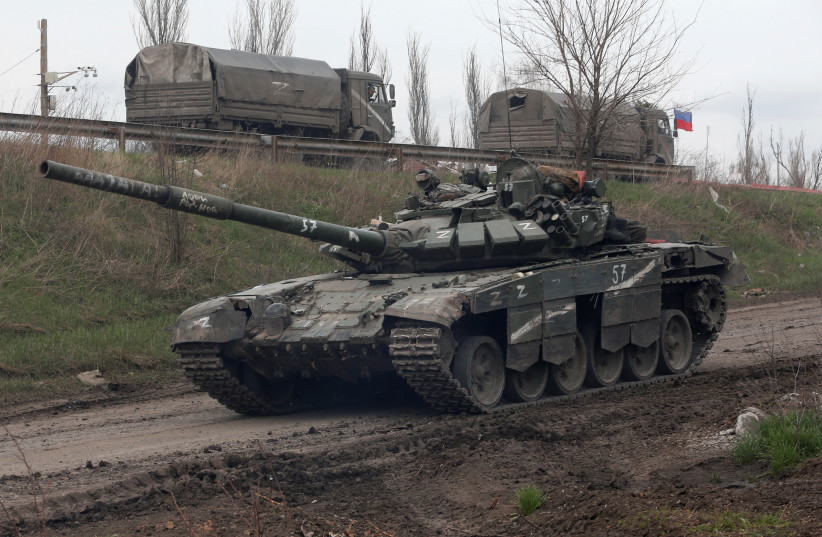Being Jewish and watching Russia’s war on Ukraine brings up so many collective memories. You don’t need to have European ancestry for names of places like Uman, Berdichev, Khmelnytskyi, Babyn Yar, and so many more to stir strong feelings in any Jewish heart. The recent war in Ukraine reminds us of the deep history that the Jewish people have in Ukraine.
Revisiting the historical roots of the Russian-Ukrainian conflict can also teach us how embedded the Ukrainian ethos is in so much of the Judaism we love and know.
To me, this is all very personal. I always knew I was a grandson of the Chernobyl hassidic dynasty, a grandson of the rebbes of Makarov and Berdichev, that my great aunt Shirley was from Vinnytsia, and my great grandfather a survivor of the Felshtin pogrom. The fact that these places were in Ukraine did not mean to be anything more than had they been in Lithuania, Poland or Russia.
Yet, much of the recent war has been about identity. Russia claims Ukraine is part of Russia – a debate that has raged for hundreds of years. Yet, as Eastern European expert Shalom Boguslavsky pointed out, to understand this war, we need to recognize that to Russians, saying Ukraine is part of Russia means only that it is a colony of Russia – one that is far inferior to Russia.
For centuries, Boguslavsky explains, Russians saw themselves as the superior, acculturated ones. Russia is Pushkin and Tchaikovsky, Kandinsky and Dostoevsky, while to them, Ukraine is peasants and simpletons. Russia is about big cities and industry, while Ukraine was about farms and agriculture. Russian is the proper and superior language, while Ukrainian was the inferior perversion of what real Russian was about.

On the other hand, Ukrainians took great pride in their folksiness, farming, and family-centered life. Folk art, folk music, love of nature, wide sidewalks and embrace of the outdoors, love for the traditional horse and carriage, the mud-made Khata houses, and so much more are loved parts of Ukrainian life.
IT IS impossible to see this simplicity – historically used by Russia to denigrate and persecute Ukrainians – and not think of how hassidic Judaism has emerged on that fertile ground. The Breslov embrace of simplicity and joy, Berditchev’s embrace of non-judgmentalness, Medzhybizh’s love for the simple Jew, the big boots worn in New Square to evade the deep mud we have seen trap Russian tanks, and even the scorn for the overeducated Jew who sees himself as superior – all are deeply inspired by Ukraine’s unique culture.
It is hard to see even some of the Jewish-Lithuanian approaches to hassidut and not think of the scorn Lithuanian-Polish people felt during those times toward Ukraine – seeing them as too simple, folksy and less educated.
By now, the people have spoken. Indeed, history has spoken. The tens of thousands of Jews going on pilgrimages to Uman; the love for hassidism across Ashkenazi, Sephardi, Mizrachi, and Lithuanian communities speak for themselves.
By now, the unique flavor of Ukraine has become part of who we are as Jews. Through the masters of hassidic Judaism, the music of the heart, the love for the simpleton, and even the hearty l’chaim on occasion, we are all Ukrainian in one way or another.
This is not to ignore the role Ukrainians played in the Holocaust, the pogroms of the 1800s, Khmelnitzky’s pogroms, and much more. It is to say that over the past 1,000 years that Jews spent in Ukraine, we did more than just get killed. We took its beauty of folk and simplicity and made it part of who we are. In one way or another, hassidic Judaism has made us all Ukrainian.
The writer is an 11th-generation rabbi, teacher and author. He has written Sacred Days on the Jewish Holidays, Poupko on the Parsha, and hundreds of articles published in five languages. He is a member of the executive committee of the Rabbinical Council of America.
